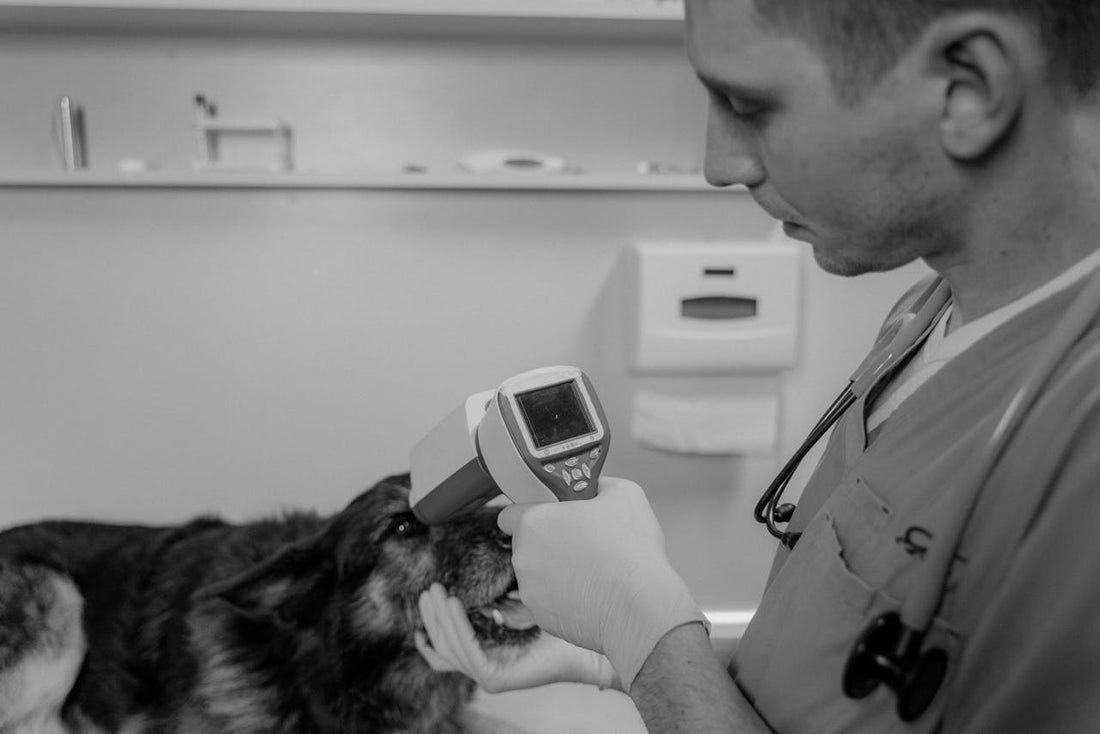
De juiste dierenarts voor uw hond kiezen
Pet Stop Boutique1. Vraag om aanbevelingen
Begin met het vragen van aanbevelingen aan vrienden, familie en buren. Persoonlijke ervaringen zijn van onschatbare waarde. Als u iemand in het hondenpark ziet met een goed verzorgde hond, aarzel dan niet om te vragen welke dierenarts hij/zij gebruikt. Online beoordelingen kunnen ook inzicht bieden, maar verslagen uit de eerste hand zijn vaak het meest betrouwbaar.
2. Controleer kwalificaties en ervaring
Zorg ervoor dat de dierenarts de juiste licentie heeft en de nodige kwalificaties. U kunt deze informatie meestal vinden op de website van de dierenarts of door rechtstreeks contact op te nemen met de kliniek. Houd rekening met de ervaring van de dierenarts, vooral als uw hond specifieke gezondheidsproblemen heeft. Een dierenarts met veel ervaring met honden is waarschijnlijk een breed scala aan gezondheidsproblemen en behandelingen tegengekomen.
3. Bezoek de kliniek
Bezoek de kliniek voordat u een beslissing neemt. Let op de netheid en organisatie van de faciliteit. De omgeving moet kalm en gastvrij zijn voor honden. Let op hoe het personeel omgaat met zowel de honden als hun eigenaren. Vriendelijk en deskundig personeel is een goede indicator van de zorg die uw hond zal ontvangen.
Evalueer communicatie
Communicatie is de sleutel in elke relatie, inclusief die met uw dierenarts. Een goede dierenarts moet de gezondheidsproblemen en behandelingen van uw hond op een duidelijke en begrijpelijke manier kunnen uitleggen. Ze moeten ook openstaan om al uw vragen te beantwoorden. Als u zich gehaast of afgewezen voelt, is het misschien niet de juiste match.
Houd rekening met locatie en openingstijden
Gemak is belangrijk. Kies een dierenkliniek die dicht bij uw huis is en die openingstijden heeft die passen bij uw schema. Noodgevallen kunnen voorkomen en een dierenarts in de buurt hebben kan een groot verschil maken. Controleer daarnaast of de kliniek spoedeisende hulp biedt of een verwijzingssysteem heeft.
Zoek een kliniek met volledige service
Een full-service kliniek die een scala aan diensten aanbiedt, van routinecontroles tot operaties, kan erg nuttig zijn. Het is handig om één plek te hebben die alle gezondheidsbehoeften van uw hond kan behandelen. Diensten waar u naar op zoek moet zijn, zijn onder andere vaccinaties, tandheelkundige zorg, diagnostiek en operaties.
Beoordeel kosten en betalingsopties
Dierenartszorg kan duur zijn, dus het is belangrijk om de kosten te begrijpen en welke betalingsopties beschikbaar zijn. Vraag naar de prijzen van de kliniek voor routinebezoeken, vaccinaties en spoedeisende hulp. Sommige klinieken bieden betalingsplannen of accepteren huisdierverzekeringen, wat kan helpen om de kosten te beheersen.
Vertrouw op je instincten
Vertrouw uiteindelijk op je instinct. Jij kent je hond het beste, en als iets niet goed voelt, is het dat waarschijnlijk ook niet. Je comfort met de dierenarts en de kliniek is essentieel voor een positieve en productieve relatie.
Het kiezen van de juiste dierenarts voor uw hond vereist zorgvuldige overweging van verschillende factoren, van aanbevelingen en kwalificaties tot communicatie en kosten. Door de tijd te nemen om onderzoek te doen en potentiële dierenartsen te bezoeken, kunt u een betrouwbare en ervaren professional vinden die uw hond gezond en gelukkig zal houden. Vergeet niet dat de juiste dierenarts het verschil kan maken in de kwaliteit van leven van uw hond.





